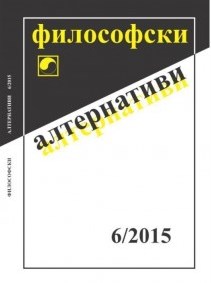Феноменология и мислене без способности
Phenomenology and Thinking without Faculties
Author(s): Ivaylo DimitrovSubject(s): Philosophy, History of Philosophy, Philosophical Traditions, Special Branches of Philosophy, Philosophy of Mind, Phenomenology
Published by: Институт по философия и социология при БАН
Keywords: Husserl; Kant; thinking; faculty; force; imagination; neo- Kantianism; psychologism
Summary/Abstract: The article sketches an approach to an analysis of the reasons for the contemporary sceptical attitude towards the philosophical relevance of classical thinking in terms of the notions of faculties and forces. This distrust is regarded as one of the subversive points of a newly construed „neo-Kantian consensus“ between the opposite, more or less strict, borders of the contemporary philosophical analytic-continental rift. Husserl’s scepticism towards the critical notion of the transcendental function of the power of imagination is analyzed in the context of the strong influence of the psychological and anthropological misinterpretations of Kant’s transcendental deduction of the categories. In this context, of particular importance is Wolfgang Carl’s elucidation of Kant’s ubiquitous term Erkenntnisvermögen, construed as Quelle, in the sense of a source of epistemic justification of both the semantic contents and the objective validity of the concepts; it is thus clearly opposed to its false psychological reading (in the influential 19th century debate between Fries and Herbart) as a generative source of factual cognition.
Journal: Философски алтернативи
- Issue Year: XXIV/2015
- Issue No: 6
- Page Range: 34-43
- Page Count: 10
- Language: Bulgarian
- Content File-PDF

